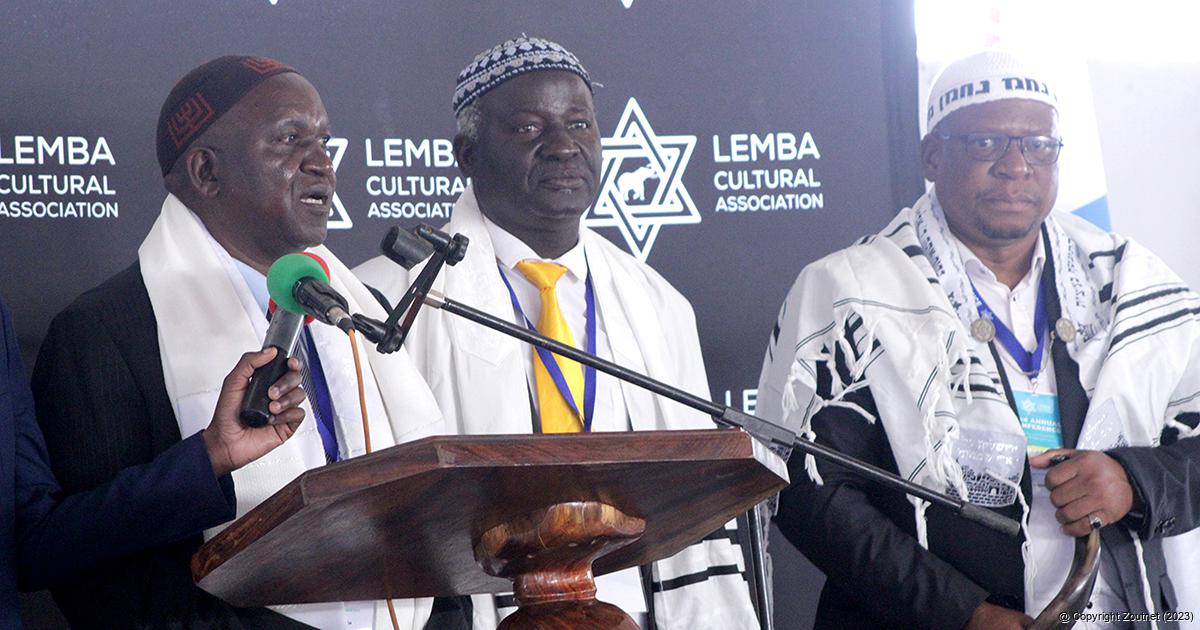By Thomas Sibanda
Historians believe that the Lemba people group, also known as the Balemba, Basena, Basoni, Vamwenye, Varemba and Balepa, are descendants of Yemenite Jews. The Lemba reside mainly in Southern Africa.
The Lemba people are known by different names in different places where they lived and continue to live. Among the Venda-speaking people, the Lemba are known as vhaLemba or vhaShavhi; among the northern Sothos, they are known as maLepa. Among the Nguni languages, they are known as the baLemba. In Zimbabwe, among the Shona group of languages, they are known as vaRemba. They are also referred to as vaMwenye or vaShavi.
Lemba people are found in large numbers in Zimbabwe in areas like Mberengwa, Masvingo, Buhera, Hwedza, Chitsungo, Gokwe and Hurungwe. They are also found in South Africa, Botswana, Zambia, Congo, Mozambique, Malawi, Kenya, Tanzania and Ethiopia. Present-day Lemba way of life resembles Jewish and Middle Eastern traditions in several aspects, as well as African traditions or ubuntu. The Lemba merged these different aspects to come up with a unique indigenous identity.
It is said that approximately 2,500 years ago, a group of Jews left Judea and settled in Yemen. The tribe was led by the house of Buba and we are told that this move was to facilitate trade. In Yemen, they settled in a place and built a city called Senna 1. They were then known as the BaSenna (the people from Senna). When conditions became unfavourable in Yemen, the House of Hamisi took over the leadership and led the people across Africa.
The Lemba believe that a group of about seven men started off by marrying African women when they settled on the continent. The group grew large and eventually split into two sections. One group settled in Ethiopia and the other group went further south along the East Coast. They settled in what today is known as Tanzania and built Senna 2. Here they prospered and increased in numbers. A small group went and settled in Malawi and Kenya. Their descendants are still residing in these countries and are generally known as Ba Mwenye (lords of the land). The remaining group, under the leadership of the house of Bakali, moved on and settled in Mozambique. Here they built Senna 3. Even today, the BaSenna are found in Mozambique.
After many years, part of the group, now under the leadership of Seremane moved further south to settle in Chiramba in what is present-day Zimbabwe. They were known as the Ba-Lemba. Some of the tribe then moved south again and eventually settled in South Africa.
The 12 Lemba clans in SADC are; Buba/Juda, Hamisi/Hamese, Bakali/Bakari Pakgadi Rabakali/Rapakgadi, Seremani/Seremane/Solomon, Shlomo / Suleiman, Tovhakale/Thobakgale/Tovakare, Mhani Mani Hadzhi Hadji/Rahadji, Sadiki/ Sathekge/Sadiq/Tzadik, Ngavi/Zungunde, Mange/Nemanga, Salefu/Sarefu and Thinyaladzi/Chinyaladzi.
The Lemba follow religious traditions similar to those of the Jews. They practice circumcision they wear skull caps, and avoid eating pork and food with animal blood. They slaughter animals using similar customs as the Jews. They put the Jewish Star of David on their tombstones. They follow a lunar calendar and celebrate holidays timed with the phases of the moon. The Lemba have a sacred prayer language which is a mixture of Hebrew and Arabic. British scientists have carried out DNA tests on the Lemba people of Zimbabwe which have confirmed their Semitic origin. These tests back up the group’s belief that a group of perhaps seven men married African women and settled on the continent.
The Lemba also possess a religious artefact which connects them to their Jewish ancestry. It’s a replica of the biblical Ark of the Covenant known as the ngoma lungundu, the drum that thunders. This drum is also attached to the Venda oral history and traditions. The Zimbabwe Museum of Human Sciences contains the seven-hundred-year-old ngoma lungundu, which is the oldest wooden object ever found in sub-Saharan Africa.
In other African countries, the Lemba people are or part of these clans: Rwanda and Burundi -Tutsis, Uganda – Abajudaya, Ethiopia – Falashas or Orities, Ghana – Ashanti or Sefwi, Congo, especially the Khasai and Shaba provinces – Ben-Lembas or Balubas and Nigeria – Igbos.
Some historians believe that the word Lemba translates to ‘those who wear turbans’. Another theory is that the word Lemba may originate from “lembi”, a term which occurs in several North-eastern Bantu languages meaning a “non-African” or a “respected foreigner”.


Really feel proud to be under well known cultural Group Kkown Lemba.
Please just want to know my history is burning me please help
Want to know history about Lemba in matebeleland called Sizalemithi, Mehlwejozi